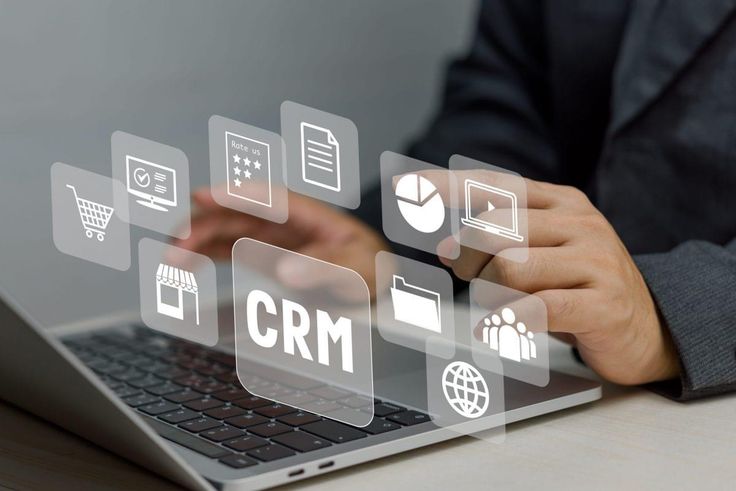
CRM for Hospitality: Providing Personalized Guest Experiences
In the hospitality industry, delivering exceptional guest experiences is paramount to success. Customer Relationship Management (CRM) systems have revolutionized how hotels, resorts, and other hospitality businesses manage relationships with guests. By leveraging CRM technology, hospitality providers can personalize interactions, anticipate guest needs, and create memorable stays that foster loyalty and satisfaction. This article explores the role of CRM in enhancing guest experiences within the hospitality industry and the benefits it brings to both guests and businesses.
Understanding CRM in Hospitality
CRM systems in hospitality serve as centralized platforms that capture, analyze, and utilize guest data to improve service delivery and guest satisfaction. These systems integrate various touchpoints throughout the guest journey, including reservations, check-ins, dining experiences, spa treatments, and post-stay communications. By consolidating guest information and preferences, CRM enables hospitality providers to tailor their services, anticipate needs, and exceed guest expectations.
How CRM Enhances Personalized Guest Experiences
1. Comprehensive Guest Profiles
CRM systems aggregate guest data from multiple sources, such as booking history, preferences, special requests, and previous interactions. This centralized repository allows hospitality providers to create detailed guest profiles that capture individual preferences, dietary restrictions, room preferences, loyalty status, and past feedback. With this information readily available, staff can personalize interactions and anticipate guest needs proactively.
2. Personalized Communication
CRM enables personalized communication throughout the guest journey, from pre-arrival emails to post-stay follow-ups. Automated workflows and templates facilitate timely and relevant communication, such as welcome messages, room upgrade offers, dining recommendations, and anniversary greetings. Personalized communication strengthens relationships with guests, enhances their experience, and encourages repeat visits.
3. Enhanced Service Delivery
By understanding guest preferences and past experiences, hospitality providers can tailor service delivery to meet individual expectations. CRM systems facilitate seamless coordination between departments, ensuring that guest preferences are communicated effectively. For example, housekeeping can prioritize amenities or room preferences, while restaurant staff can prepare meals according to dietary restrictions or preferences noted in the CRM.
4. Targeted Marketing and Loyalty Programs
CRM systems enable hospitality providers to segment guests based on demographics, behavior, and preferences. This segmentation allows for targeted marketing campaigns, special offers, and loyalty programs tailored to specific guest segments. By rewarding loyal guests and encouraging repeat visits, CRM helps increase guest retention and lifetime value.
5. Operational Efficiency
CRM streamlines operational processes by automating routine tasks such as reservation management, check-in procedures, and guest feedback collection. This efficiency frees up staff to focus on delivering personalized service and addressing guest needs promptly. Real-time updates and alerts ensure that staff have up-to-date information to provide seamless guest experiences.
6. Feedback and Reputation Management
CRM systems facilitate guest feedback collection through surveys, reviews, and post-stay evaluations. Integrated feedback mechanisms capture guest sentiment and identify areas for improvement. Hospitality providers can analyze feedback trends, address concerns proactively, and enhance service quality based on guest insights. Positive guest experiences and proactive service recovery contribute to improved online reviews and reputation management.
Key Features of CRM for Hospitality
To maximize the benefits of CRM in hospitality, providers should look for the following key features:
- Integration with Property Management Systems (PMS): Seamless integration with PMS for real-time updates on reservations, room availability, and guest preferences.
- Mobile Accessibility: Mobile-friendly CRM applications that enable staff to access guest information and manage interactions on-the-go.
- Analytics and Reporting: Robust reporting tools to track guest behavior, measure satisfaction metrics, and evaluate the effectiveness of personalized initiatives.
- Task Automation: Workflow automation for check-ins, room assignments, guest requests, and follow-up communications.
- Guest Segmentation: Tools to segment guests based on demographics, preferences, and booking history for targeted marketing and personalized service.
- Data Security and Compliance: Ensuring compliance with data privacy regulations (e.g., GDPR) and robust security measures to protect guest information.
Implementing CRM in Hospitality
Successful implementation of CRM in hospitality requires:
- Staff Training: Comprehensive training to ensure that staff understand CRM functionalities and how to use guest data effectively.
- Integration with Existing Systems: Seamless integration with existing IT infrastructure, including PMS, POS systems, and booking engines.
- Continuous Improvement: Regular evaluation and refinement of CRM strategies based on guest feedback and performance metrics.
Conclusion
CRM systems are transforming the hospitality industry by enabling personalized guest experiences, enhancing service delivery, and driving guest loyalty. By leveraging guest data to anticipate needs, personalize interactions, and streamline operations, hospitality providers can create memorable stays that exceed guest expectations. As competition intensifies and guest expectations evolve, CRM technology will continue to play a pivotal role in helping hospitality businesses differentiate themselves and build lasting relationships with guests.
By investing in CRM solutions tailored to hospitality, businesses can not only improve guest satisfaction but also increase operational efficiency, drive revenue growth, and maintain a competitive edge in the dynamic hospitality market.